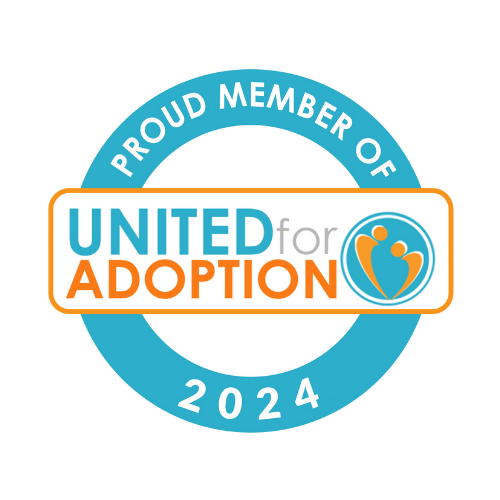The latest message for currently-licensed foster families from the Utah Division of Child and Family Services (DCFS):
To our valued foster and kinship families,
First, a big thank you for surviving an unprecedented week of homeschooling, pandemics, and earthquakes! You never cease to amaze us with your professionalism and commitment to the children we serve together. As we continue to work to support the safety and wellness of our communities and prevent the spread of COVID-19 (Coronavirus), I wanted to reach out to you all and share updated information and reassurance that your concerns are important to us and we want to assist in answering any questions you may have.
If you have any health-related questions on COVID-19, we encourage you to contact your primary care provider or call the Utah Coronavirus Information Line at 1-800-456-7707 or visit coronavirus.utah.gov.
DCFS offices
Our offices are open and have staff available. Electronic communication
is preferred whenever possible. If you need to call an office you can go to our location map at our dcfs.utah.gov website for contact information.
Child and Family Team Meetings
CFTMs are an important tool for communicating with children, foster families and parents as we work to address individual cases and any barriers or changes due to COVID-19.
Decisions on whether to hold CFTMs remotely will be brought to the team and be dependent on each case and any unique considerations.
Child Well Visits and Telehealth
Due to the current COVID-19 outbreak, routine medical and dental exams will be reduced or delayed.
Fostering Healthy Children Nurses will be monitoring this closely and document (in activity logs) health and mental health exams being delayed due to precautionary measures associated with the current COVID-19 outbreak.
Foster parents and caregivers should call their primary care provider to address any immediate foster children health concerns.
Immunocompromised Children or Family
Coordinate with primary care providers, fostering healthy children
nurses and the Child and Family Team on specific steps to address the child’s safety and wellbeing.
If you or a family member fall into this category, please take additional precautions regarding contact in order to promote their health. Engage the Child and Family Team as needed.
Respite for Foster Parents
Foster parents unable to care for children due to work and school cancellations should reach out to the caseworker and RFC for assistance in finding solutions for respite.
In order to expedite respite resources, the Office of Licensing has approval
to complete Utah-only name based checks in limited circumstances if live scan is not an option. Follow-up fingerprints should be completed when live scan prints are available again.
Reimbursements
There are no interruptions to foster parent reimbursements. Workers will be able to continue to approve reimbursements remotely.
Parent Time
It is critical for children and their parents to maintain relationships with one another and their support systems in order to reduce trauma for children and parents. Communication between children and parents
SHOULD NOT be suspended due to this pandemic.
Parent-child visitations should be held remotely (Google Hangouts
Chat, Skype, FaceTime, phone calls, etc.) unless the age of the child, or other extenuating circumstances, would limit the effectiveness of electronic communications to maintain or create a parent-child bond.
Workers are encouraged to work with the Child and Family Team, including AAG, GAL and Parental Defense to utilize creative solutions in preserving parent time.
If the team determines that in-person visits are critical due to the unique circumstances of the case, the following safety measures should be followed:
All parties shall follow CDC hygiene guidelines by washing hands before and after visitation and using hand sanitizer frequently.
If parent time occurs in a visit room, the visit room will need to be wiped down with disinfectant before and after.
If parent time occurs elsewhere, the visitation group should be socially distanced from others not participating in the visit, and any indoor space should be disinfected.
If anyone involved in the scheduled in-person visit is sick, the visit must be rescheduled.
Consider the most frequent electronic parent-child communication that is feasible in order to help maintain connections, especially if in-person visitation is not occuring.
If the parent does not have access to technology necessary for effective electronic communication, DCFS offices can be utilized to assist parents with electronic communication (wifi, computers, etc).
Visits
Home visits and private conversations with foster children can be conducted remotely (Google Hangouts Chat, Skype, FaceTime, etc.) if the safety and wellbeing of the child can be effectively assessed. Remote practices should reflect the following:
That the child/youth has access to an electronic device that will allow them to visit with you in an area of the home where they can have a private conversation
That a healthy relationship between the foster child/youth and the caseworker can be effectively developed or maintained through electronic communication.
That more frequent and ongoing remote communication to assure placement and child needs are being met is important if the child has been in the home less than a month and electronic communication is determined to be appropriate.
That any concerns regarding possible disruption from the placement can effectively be managed through electronic communication.
That an in-person assessment of the family home must be made if a child is transitioning from foster care to a trial home placement.
If you have children beyond your office’s local community who need an in-person visit, please request a courtesy visit and/or ongoing worker in that area at least through the end of March 2020. CWA to CWA email coordination is sufficient; full courtesy casework request protocol is suspended at this time.
If a child is placed in a congregate care setting that already has staff monitoring their care, all visits should be completed electronically unless there are extenuating circumstances related to safety.
Court hearings
The courts have provided the following information:
As a way for the courts to do their part to social distance and keep everyone safe, they will be contacting workers, attorneys and other parties on whether any changes in court hearings will occur over the next couple weeks. Up-to-date information can be found at https://www.utcourts.gov/alerts/.
In order to support all of you in our shared mission of keeping children safe and strengthening families we are also sharing the Utah DCFS COVID-19 Reference Guide, which we created to support our workforce in maintaining safety and meeting the unique challenges created by this pandemic. This document should not be printed as it is regularly being updated and should be accessed only electronically.
It has a lot of information that you as foster parents won’t be interested in,
but is a good reference for you to be aware of so that you know what our caseworkers are working off of. It includes all of the items referenced in this email, and updates will occur in the online document. So, check there for evolving practices as needed. I hope each of you may find moments of solace and self care this weekend.
We appreciate all that you do on behalf of kids!
Kindest regards,
Diane Moore
DCFS Director
Message from Utah Foster Care:
All of us at Utah Foster Care realize the strain you are experiencing in these confusing and uncertain times. As you know, Utah Foster Care has temporarily canceled all in-person classes and Cluster meetings, based on recommendations from local and national health officials.
To relieve some of that strain, DCFS has made some changes in the requirements for in-service training for current foster parents that goes towards renewing your license.
- DCFS is waiving the four hours of in-person training requirements.
- In its place, you are being allowed to utilize online training classes.
Currently, we have a library full of recorded webinars that can be accessed at https://utahfostercare.org/training-for-parents/inservice/. Here’s a list of the classes available:
Calming Anxiety in Children | 45 Min (1 Credit Hour)
SAD: Seasonal Affective Disorder | 57 Min (1 Credit Hour)
Secondary Trauma | 55 Min (1 Credit Hour)
Understanding Sensory Processing Issues | 44 Min (1 Credit Hour)
RAD: It May Not be What You’ve Heard | 60 Min (1 Credit Hour)
Working with the School System | 47 Min (1 Credit Hour)
Understanding Addiction | 37 Min (0.5 Credit Hour)
Caring for the Sexually Reactive Child | 61 Min (1 Credit Hour)
Maintaining Healthy Relationships | 56 Min (1 Credit Hour)
Toileting Problems: Encopresis & Enuresis | 59 Min (1 Credit Hour)
Effective Discipline | 43 Min (1 Credit Hour)
Bullying: Key Players & How to Address the Role Your Child Plays | 59 Min (1 Credit Hour)
Goodbye Rituals: Ideas on How to Say Goodbye | 62 Min (1 Credit Hour)
Effects of Childhood Trauma on Brain Development | 93 Min (1.5 Credit Hours)
Discipline Strategies: A Focus on Children with Trauma | 50 Min (1 Credit Hour)
What Kids Need to Succeed | 66 Min (1 Credit Hour)
Assisting Biological Children | 78 Min (1 Credit Hour)
Building Trust-based Relationships: The Color Code | 66 Min (1 Credit Hour)
The Shame We Carry | 48 Min (1 Credit Hour)
Managing Emotions & Behavior | 61 Min (1 Credit Hour)
TO GET CLASS CREDIT – Important!
Once you have watched one of the webinars listed above, please send an e-mail to your trainer (find them in the staff directory) stating the title of the video, the presenter, the date and time you listened, as well as three ideas you took away from the training that you intend to use with children in your home. This will guarantee that you will receive the appropriate credit for renewal hours for licensing.
Important: If you are watching a video as a couple, each of you must send an e-mail with the required information.
In addition, you may check with your Resource Family Consultant (RFC) for movie, documentary and book suggestions.
In addition to the current library of recorded webinars, we’ll be working to put together some other fun and informative, training, including live streaming classes in some regions. Watch your region’s Facebook group page for new classes – if you are not yet a member of the page – now is the time to join! These groups are full of great information and support.
This is a challenging time! We send our best hopes for you and your families. Please reach out for any extra support you need at this time—or anytime! Thank you!






